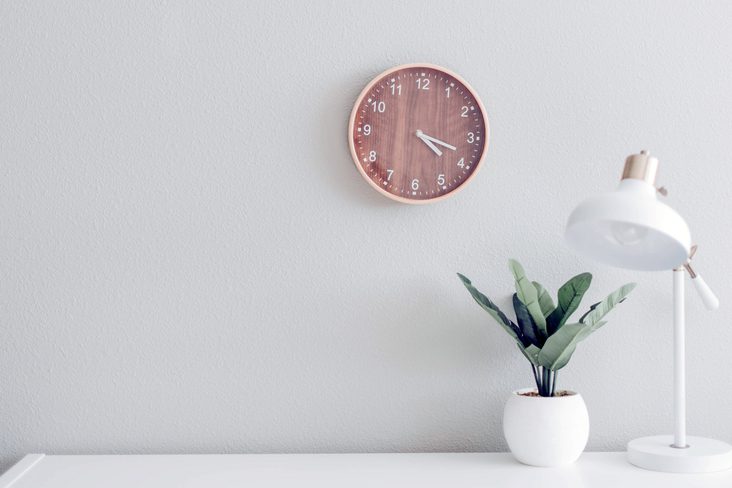According to an illuminating study by the Virgin Pulse Institute, up to 76% of the American workforce report feeling tired at work most days of the week. Another 40% struggle to manage tiredness at work, finding themselves dozing off during the day.
If you've experienced workplace fatigue, there are many initiatives you can take to reduce tiredness, increase your productivity, and, ultimately, your happiness at work.
Read on to learn some of the best techniques for overcoming workplace fatigue.
Eat breakfast for more energy throughout the day
You've probably heard experts recommend that people eat a nutrient-packed breakfast each day, but a survey conducted by yfood found that 86% of Brits admit to skipping their breakfast and replacing it with crisps, biscuits and other sugary, nutrient-lacking snacks. With these figures, it's no wonder that people across the UK feel fatigued all day at work.
In the same poll, people felt that bringing a healthy snack to work was 'too expensive', a reasonable factor to consider in a cost of living crisis. Sadly, they may be correct, according to the Broken Plate Report, which found, based on nutrient profile modelling, that healthier food costs double on average compared to processed alternatives. It is always worth considering the detrimental health impacts of unhealthy food, as they impact your long-term health, fatigue levels, and general wellbeing at work.
When you miss the day's first meal, you deprive your body of much-needed energy. Starting your day in an energy deficit forces your body to tap into energy reserves throughout the day.
Here's how you can boost your energy levels naturally through breakfast:
- Incorporate protein: It's a good idea to have some protein for breakfast. Not only does this provide essential body-building nutrients, but it also keeps you feeling full for longer. Ideal sources of protein include Greek yoghurt and eggs.
- Make a breakfast smoothie: Want to have a high-energy and refreshing breakfast? Blend some fruits, yoghurt, tofu, and other ingredients to make a smoothie.
- Eat in, not out: Eating out is not only expensive but also less healthy. Restaurant food's additives, such as saturated fats and sugar, can really weigh you down and deplete you of energy after an initial high.
Move your body throughout the day to reduce tiredness at work
What is the first thing you do when you're exhausted or sleepy at work? Many people either rest or grab a cup of coffee.
Although both of these temporarily energise you, a more effective way to prevent fatigue during your workday is to go for a walk or do some light movement.
Here are some statistics to support this concept:
- Engaging in low-intensity exercises, like walking, reduces fatigue levels by up to 65%
- Walking up and down the stairs for just 10 minutes improves your energy more than ingesting 50 mg of caffeine.
- Walking outdoors significantly reduces stress levels and boosts your mind.
If you need more time to walk, look for clever ways to incorporate movement into your routine. Here are some ideas for you to consider:
- Take the stairs instead of using a lift
- Do some office stretches to help reduce back pain and postural strains
- Walk to your colleague's desk instead of emailing them
- Park your car far away from the office and walk.
- Walk to a nearby park instead of eating at your desk.
- Use rest-rooms on a different floor
Remember, the other great thing about exercising is that it can also improve your productivity at work.
Aromatherapy for fatigue management
Essential oils refer to concentrated compounds extracted from plants through mechanical methods such as cold pressing or water distillation.
For centuries, essential oils have been used to manage pain and fight bacteria. Recent studies also show that aromatherapy—the application of essential oils—can fight fatigue.
This study published in BMC Complementary Medicine and Therapies shows that compound essential oil is particularly effective in combating central fatigue.
Similarly, a study found that essential oils boost relaxation, reduce anxiety and prevent fatigue. Opting for aromatherapy is much healthier than ingesting caffeinated drinks that cause an adrenaline rush, which strains your adrenal glands.
So here are some recommendations on how to use essential oils to fight fatigue during work hours:
- Aromatically - you can add a few drops of your favourite essential oil to your office diffuser or light a fragrant candle on your desk
- Topically - look for body creams and lotions that contain essential oils
- Internally - add a drop of organic lemon oil to your drinking water
Try peppermint, rosemary, sage, eucalyptus and citrus to enhance your wakefulness.
Avoid lavender, chamomile, Ylang Ylang (but try them for better sleep).
Be sure to use only therapeutic-grade essential oils.
It's also a good idea to get approval from your physician, as some essential oils can cause side effects. Be sure to check with others in the workplace to ensure they don't have any allergies or conditions that could be impacted by the use of aromatherapy. If you have pets in your workplace, make sure that anything being used is non-toxic to them.
Avoid technology at bedtime to prevent exhaustion
As Science Direct explains, sleep deprivation is one of the biggest causes of workplace fatigue. This is not surprising, considering that 60% of Britons get less than six hours of sleep each night.
While some causes of sleep deprivation are unavoidable, like long work shifts, there are others that you can control, like using electronic devices right before you sleep.
Using tablets, laptops, smartphones and TVs briefly before you sleep interferes with your body's internal clock.
More specifically, it affects the production of melatonin, the sleep-inducing hormone. As a result, it is much more difficult to fall asleep. Avoiding tech before bedtime significantly reduces tiredness at work and keeps you from feeling grumpy and unproductive the next day.
To avoid this, limit your exposure to electronic devices at night. Even switching them off, including modems and routers, can be beneficial to your sleep. Consider purchasing an old-school windup alarm clock if you rely on your phone for its alarm feature.
You can also take up healthy sleep habits such as:
- Sticking to a consistent sleep schedule
- Reducing stimulant intake such as caffeine from the afternoon onwards
- Avoiding daytime naps as they make it harder to fall asleep
- Adopting a healthy bedtime ritual like taking a warm bath, listening to music or reading a book.
- Creating a sleep-promoting environment; it should be dark, quiet and cool
Bonus strategies for preventing fatigue at work
Drink more water
Dehydration sneaks up on you and causes you to feel tired before you even realise that you need water. Drink consistently throughout the day and add electrolytes to increase their effectiveness.
Keep healthy snacks at your desk
It's difficult to sneak away for a refreshing walk or stretch. For a little pick-me-up, keep healthy snacks like dried fruit and nuts in your desk drawer.
Change your work environment.
Our working environment plays a massive role in our concentration. If you can move desks or work in a common area, the change of scenery can be refreshing. Like our homes, sometimes we personalise our workspaces to the point where they become distracting. If you need to focus on your tasks, try getting out of your space for a while to reset.
If moving from your workspace isn't possible, try redecorating your space and removing old files and other clutter or distractions.`
Use your leave allowance
Although this seems like an obvious one, too many people—45 % — are not taking enough annual leave in the UK. If your fatigue is becoming chronic, it could be a sign of burnout. Rest is the best cure for burnout, so if you need it, take it!
If your workplace doesn't have an easy system for requesting and managing leave, speak to your manager about using a leave management system to relieve the pressure.

Final thoughts on workplace fatigue
By incorporating the strategies we have discussed into your daily work routine, you can significantly improve your productivity and prevent fatigue at work. Starting with a nutritious breakfast, incorporating light movement into your day, and ending your day in a technology-free environment can make a huge difference in preventing fatigue.
Add to this a bit of aromatherapy, hydration, and taking time off when you need it, and you can really support your energy levels and reduce any feelings of tiredness that prevent you from feeling and achieving your best at work.




